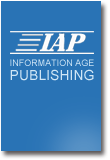
Redefining the Future of Human Resource Management
Edited by:
James H. Dulebohn, Michigan State University
Brian Murray, University of Dallas
Dianna L. Stone, Universities of New Mexico, Albany, and Virginia Tech
A volume in the series: Research in Human Resource Management. Editor(s): Dianna L. Stone, Universities of New Mexico, Albany, and Virginia Tech. James H. Dulebohn, Michigan State University. Brian Murray, University of Dallas. Kimberly M. Lukaszewski, Wright State University.
Call for Papers
BOOK DESCRIPTIONThere have been dramatic changes in the social and economic environments of organizations in recent years, and these changes are propelling the field of human resource management (HRM) in new directions and redefining our perspectives on established practices. Notable recent trends include the increased opportunities for remote and virtual work that have affected the nature of the employment relationship and what employees and applicants expect from an employer. Additionally, workforce diversity and the inclusion of minority members in the organization’s leadership have taken center stage. Meeting societal expectations for equity and equality, customer needs, and cross-cultural challenges are affecting the design and delivery of HRM practices. Finally, historically significant HR trends such as globalization, benefits cost escalation, and labor unionization are rising to renewed prominence in their influence on decision making.
TOPICS OF INTEREST
Although there have been many changes in HRM over time, the field needs to continue to evolve in order to be relevant and effective into the future. Accordingly, this special issue will focus on current and emerging issues and the future of HRM processes and practices.
We are particularly interested in papers that focus on changes or new directions needed in job analysis and design, attraction and recruitment, staffing and talent management, training and development, performance management, compensation and benefits, and labor and employee relations.
• Impact of remote and virtual work HR practices
• Changes in the employment relationship.
• Impact of a global environment on new HRM practices
• Effects of changes in technology on HRM functions
• Meeting societal needs for equity in compensation and pay systems
• Effects of revitalization of labor unions on HRM practices
• Changes in employee expectations and effects on HRM practices
• Cross-cultural challenges in the design and delivery of new HRM systems
• Diversity-related challenges in the design and delivery of new HRM systems
• New HRM practices that can help organizations deal with scarcity of talent
PROPOSAL INFORMATION
Proposals should be no more than 5 pages and include (a) an introduction to the problem, question, or knowledge gap to be addressed by the paper, (b) a brief overview of the state of published knowledge, (c) a description of the approach or method the paper will present, and (d) the expected contribution(s) or implications arising from the paper.
All proposals are due November 1, 2021 and should be emailed to Dr. Brian Murray at (bmurray@udallas.edu)
CHAPTER SUBMISSION INFORMATION
Submissions are limited to conceptual papers, systematic or integrative literature reviews with theory, conceptual development, or research implications, critiques of the literature or the field of HRM with implications, new theoretical models or research frameworks, or meta-analyses.
Papers should (a) provide a review of the current and emerging issues for one or more HRM processes, (b) provide a thorough review of the literature on a topic, (c) present a model or framework to guide future research and practice (if needed), and (d) offer specific directions for future research and practice on the topic. Please contact James Dulebohn (dulebohn@msu.edu) if you would like to submit an empirical paper. All papers will be reviewed by two subject matter experts and the editors. Invited papers by prominent HR scholars will be included in the special issue
All final submissions are due June 1, 2023.
Final papers must be no more than 50 pages (approximately 12,500 words) including references and tables. The paper must conform to the 7th edition of the APA Publication Manual (October 2019). Submission must include an abstract. Authors will be asked to submit a 200-word bio and contact information with their submission.
If you have questions about the issue, please feel free to contact James Dulebohn (dulebohn@msu.edu), Brian Murray (bmurray@udallas.edu), or Dianna Stone (diannastone2015@gmail.com).
TENTATIVE SCHEDULE FOR PUBLICATION:
Abstract Submissions: Proposal submissions due November 1, 2021
Notification of invite to submit chapter: January 1, 2022
Submission of book chapter: September 30, 2022
Reviews of book chapter manuscripts sent to author(s): January 15, 2023
Receipt by editors of final draft of book chapters: June 1, 2023
Final book submitted to publisher: November 1, 2023
Anticipated publication: 2024
BUY ONLINE
- This title is in development and is not yet available to order online. Please call the IAP office for more information: 704.752.9125

CATEGORIES
CLASSIFICATION
RELATED TITLES
-
 Diversity and Inclusion in Organizations
Diversity and Inclusion in Organizations
-
 Forgotten Minorities in Organizations
Forgotten Minorities in Organizations
-
 Leadership
Leaders, Followers, and Context
Leadership
Leaders, Followers, and Context
-
 Managing Team Centricity in Modern Organizations
Managing Team Centricity in Modern Organizations
-
 Research Methods in Human Resource Management
Toward Valid Research-Based Inferences
Research Methods in Human Resource Management
Toward Valid Research-Based Inferences
-
 The Only Constant in HRM Today is Change
The Only Constant in HRM Today is Change
-
 The Plight of Stigmatized Groups in Organizations
The Plight of Stigmatized Groups in Organizations
